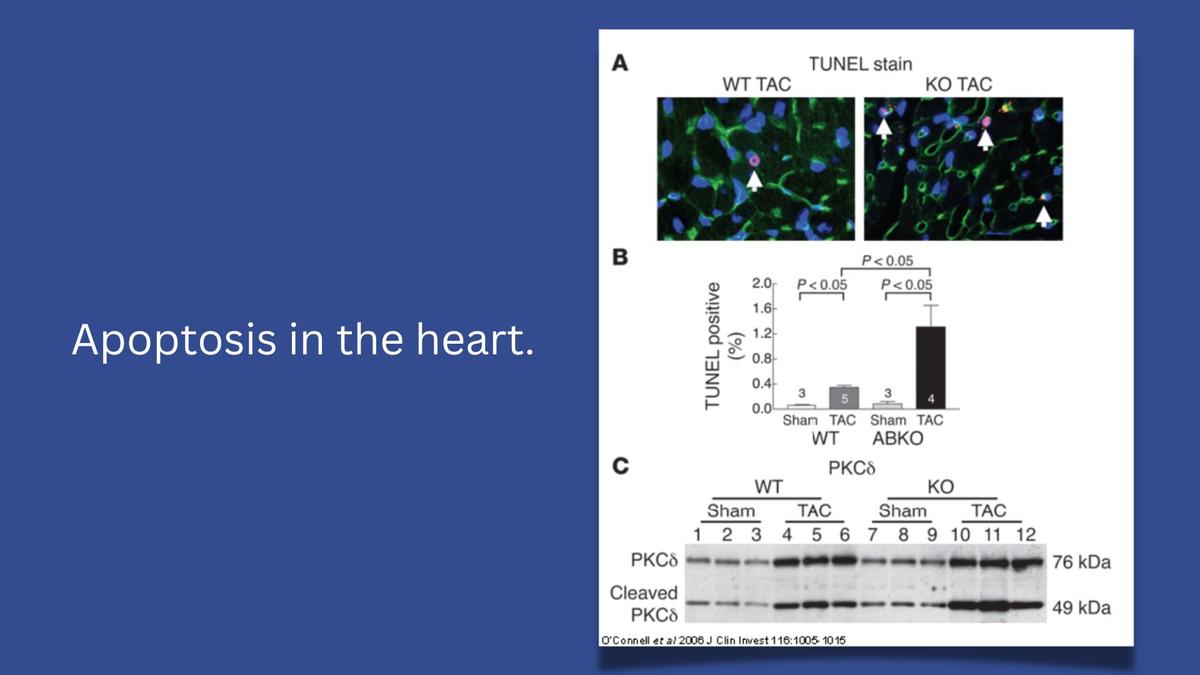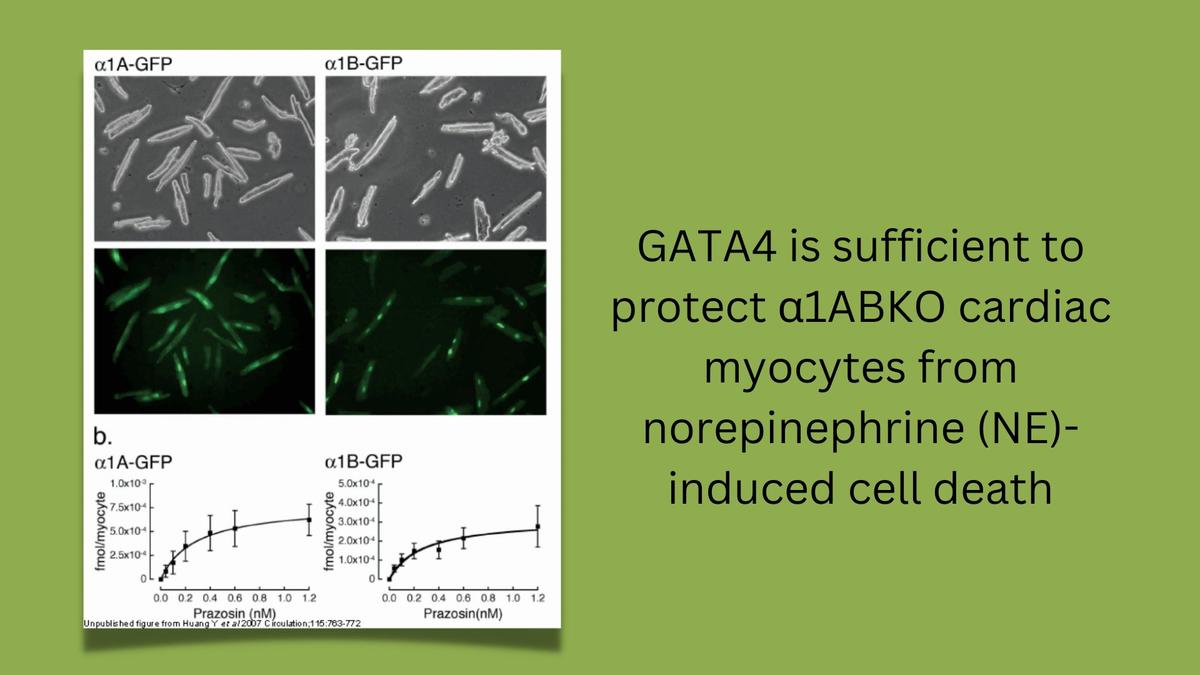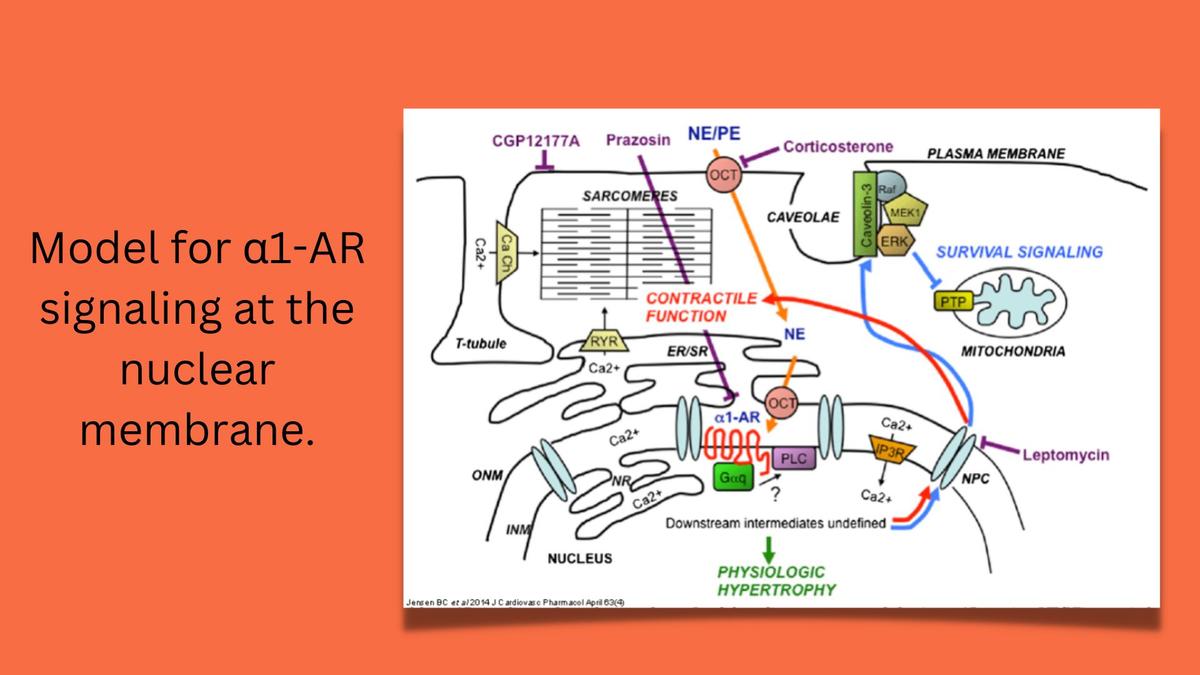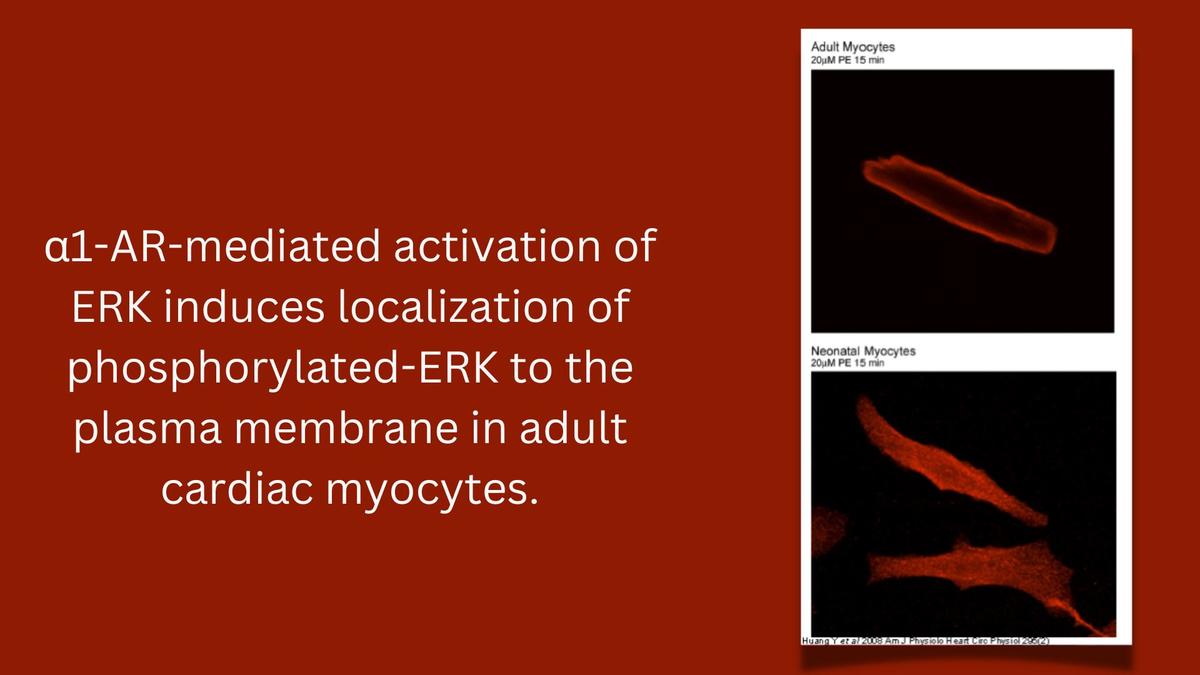α1-Adrenergic Receptors Are Cardio-protective
Clinically, the role of catecholamines and ARs in heart failure is well established and β-AR antagonists, or β-blockers, are indicated in heart failure. However, the notion that blocking all AR signaling in heart failure is beneficial is challenged by several clinical trials. In ALLHAT and V-HeFT, trials that examined the efficacy of α1-blockers in either hypertension or heart failure respectively, α1-blockade failed to show protective effects, and in ALLHAT, α1-blockade increased the risk of heart failure and death.
In mice lacking the two α1-AR subtypes expressed in the heart (α1ABKO mice), we demonstrated that α1-ARs prevent cell death and contractile dysfunction in response to pathologic stress. Subsequently, we identified an α1A-survival-signaling pathway in adult cardiac myocytes, the absence of which could explain (at least partially) the maladaptive response of α1ABKO mice to pathologic stress. Our preliminary data and work from others also demonstrated that α1A-mediated positive inotropy might prevent contractile dysfunction.
In this project, we are testing the hypothesis that cardiac-specific over-expression of the α1A-subtype is sufficient to inhibit cardiac myocyte death and preserve contractile function, thereby attenuating pathologic remodeling and reducing mortality following ischemic injury caused by myocardial infarction. We will determine if prevention of cell death by the α1A-AR is a major protective mechanism preventing pathologic remodeling in the heart. Finally we will determine if prevention of contractile dysfunction by the α1A-AR, or α1A-mediated positive inotropy, is a major protective mechanism preventing pathologic remodeling in the heart.



